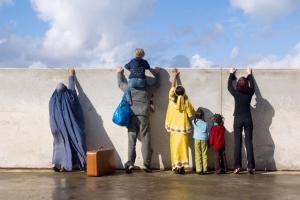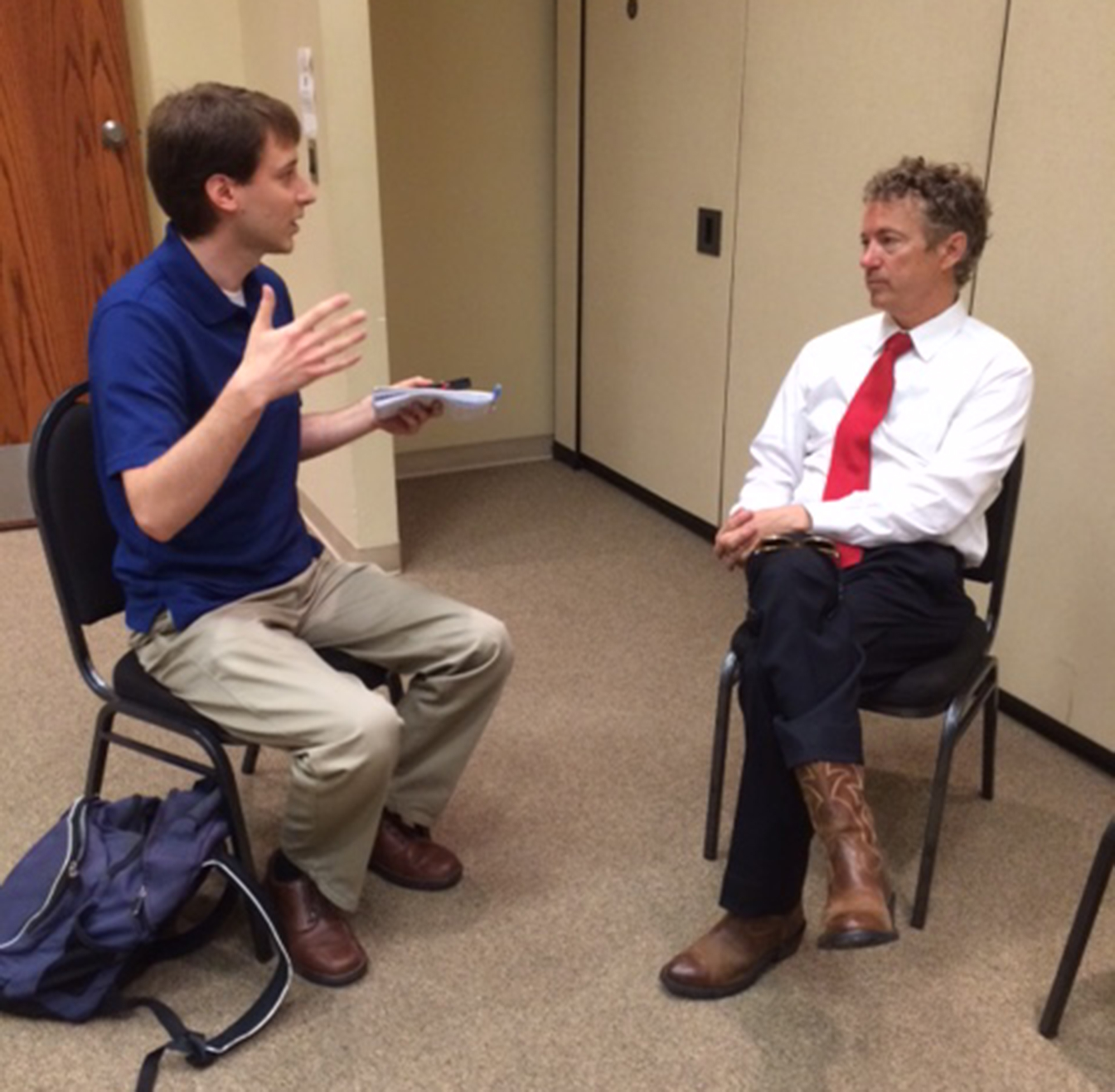If you’re familiar with the debate over immigration, you’ll notice it is mostly an attempt to answer the question, “Is immigration good or bad for America?” Some people say yes, and use statistics showing the productivity gains from immigration. Others say no, and focus on ways in which immigrants are a drag on the economy.
The major problem with this debate is that both sides are trying to answer the wrong question. Whether restricting immigration is right or wrong does not turn on immigrants’ productivity, but on the circumstances under which we can control someone’s movement.
Let’s consider a few ways in which people harm me and my loved ones, and whether I would be justified in coercing them in that particular circumstance.
Wages
I am employed as a news editor. My wages, just like the wages of all employees in the market, are a function of supply and demand. A high demand for labor tends to increase wages, but a large supply of that same labor tends to push them down. A flood of news editors entering the market would tend to depress the wages of existing news editors, because the new entrants would bid down the wages in an effort to secure employment. I might be forced between accepting a lower wage or being replaced.
Given that other news editors hurt me in this way, what can I do to them? I can’t use force against them, like blocking the door to the office when they come for an interview. The reason for this is that, even when other people bid down my wages or threaten to take my job, I have to respect their rights. They’re still humans and they still count.
Welfare
Another thing I do besides working at the newspaper is pay taxes. The taxes go toward the salaries of government employees, infrastructure projects and programs like Social Security and Medicare, among others. If someone goes on welfare, the other taxpayers and I have to pick up the tab.
Imagine I oppose subsidized housing on the grounds that my tax money is being spent on a project that does not benefit me. What am I allowed to do to the people who live there? Can I bar the door to prevent them from moving in, since it would increase my taxes? I think not. Even if subsidized housing unjustly coerces me, it does not follow I can stop people from inhabiting it, since doing so requires even more intrusive coercion than the coercion I’m trying to prevent.
Special responsibilities
I have more responsibilities to some people than I do to others. For instance, I owe things to my parents and sisters that I don’t owe to other people, like helping them with chores around the house, buying them Christmas presents and calling them on their birthday. I don’t owe any of those things to complete strangers.
Perhaps I have special responsibilities to other people in my country. This is often argued by people who oppose immigration on the grounds that we have special obligations to fellow citizens that we do not have to foreigners.
Imagine that my responsibilities to my fellow citizens are so strong that I must treat each one as if they were my own child. What would that allow me to do to foreigners, to whom I have no special responsibilities?
If I had a son in a karate competition where I was one of the judges, would it be permissible to favor him in the judging, given I have a special duty to him? I don’t think so. Would it be permissible to prevent other children from competing to ensure my son wins? Definitely not. Even though I have special obligations to my son, I can’t cheat on his behalf, and I most certainly cannot coerce strangers on his behalf. Therefore, even if I should treat fellow citizens as my own children, I cannot coerce foreigners on their behalf.
Disease
Imagine I find out my neighbor has a dangerous communicable disease. The disease is spread through the air and those exposed to it die slow and painful deaths. Even though he knows the disease has these effects, he continues to interact with the public and make people sick.
Would I be justified in forcibly quarantining my neighbor, perhaps by preventing him from leaving his house? Yes, I think so. Even though I am harming him by not letting him lead the life he wants, the great misery I am preventing outweighs his right to move freely. Similarly, immigrants with communicable disease can rightly be prevented from moving if their movement would cause massive suffering.
What these thought experiments show is that controlling where someone lives and where they go is normally wrong. It can only be justified in order to prevent something very bad from happening and not simply to avoid minor nuisances, even to those to whom we have special obligations.
(This essay originally appeared in The Fairfield Ledger)
The image featured at the top of this page depicts people reaching over a wall barring them from migrating, and was created by the European Commission.
Related reading
- Starving Marvin, our summary of a hypothetical by Michael Huemer surrounding the moral permissibility of immigration restrictions and the responses to it from many people.
- The Ethics of Illegal Migration by Nathan Smith.
- Against conflating open borders with other migration-related beliefs by Vipul Naik, where he argues that being for open borders is not synonymous to having specific or highly rosy views of the nature of migrants.
- Can deportation be a key crime-fighting strategy? by Vipul Naik, looking into both the practical and ethical limits of using deportation to fight crime.
- Keyhole solutions: permissibility, desirability, feasibility, and stability by Vipul Naik.



